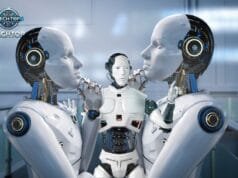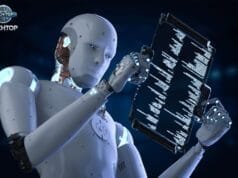AI in Healthcare 2025: Transformative Trends & Future
Table of Contents
Imagine a world where diseases are detected before symptoms appear and treatments are tailored uniquely to your genetic makeup. In 2025, AI in healthcare is not just an aspiration but a reality reshaping the medical landscape. According to recent studies, AI is expected to save the healthcare industry over $150 billion annually by 2026. In this comprehensive guide, you’ll discover: 1) the latest AI innovations in healthcare, 2) how AI enhances patient care, and 3) the future of AI-driven diagnostics.
The Role of AI in Modern Healthcare
Artificial Intelligence (AI) has become a cornerstone of modern healthcare, offering solutions to some of the industry’s biggest challenges. But what exactly is AI’s role? AI encompasses a range of technologies, including machine learning, natural language processing, and robotics, all working to improve patient outcomes.
Understanding AI Technologies in Medicine
Machine learning algorithms are at the forefront, analyzing vast amounts of data to uncover patterns that humans might miss. Nature reports that these algorithms can predict patient outcomes with remarkable accuracy.
Why AI Matters in Healthcare
AI’s ability to process and analyze large datasets quickly means it can identify trends and correlations that would take humans years to discover. This capability is critical in early disease detection and personalized medicine.
Real-World Applications
- AI-powered diagnostic tools in radiology
- Predictive analytics for patient management
- Robotic-assisted surgeries
- Virtual nursing assistants
AI and Patient Care: A New Era
The integration of AI into patient care is redefining the healthcare experience. But how exactly is it enhancing care?
AI-Driven Diagnostics
Through AI, diagnostics become faster and more accurate. For example, AI systems can interpret imaging results with higher precision than traditional methods. The Verge highlights how AI-driven systems are revolutionizing cancer detection.
Telemedicine and Virtual Care
Telemedicine, powered by AI, is bridging the gap between patients and healthcare providers. Virtual consultations and remote monitoring are becoming the norm, providing access to care for those in remote areas.
Enhancing Patient Experience
AI chatbots and virtual assistants are improving patient engagement and satisfaction by providing 24/7 support and personalized health advice.
AI in Diagnostics: Precision and Speed
In 2025, AI is set to revolutionize diagnostics, offering unprecedented precision and speed. How does it achieve this?
Machine Learning Algorithms
These algorithms analyze imaging data to identify anomalies with a high degree of accuracy, often surpassing human capabilities.
Case Study: AI in Radiology
In radiology, AI systems are used to detect early signs of diseases such as cancer, often identifying issues that radiologists might overlook.
AI in Genomics
In genomics, AI aids in sequencing genes, helping to identify genetic disorders early. This technology is crucial for developing personalized treatment plans.
AI and Healthcare Analytics
Analytics powered by AI is transforming healthcare decision-making processes. Why is this transformation important?
Predictive Analytics
AI tools predict patient admissions, disease outbreaks, and treatment responses, enabling proactive healthcare management.
Data-Driven Decisions
AI processes vast amounts of health data, converting it into actionable insights for healthcare providers to improve patient outcomes.
Example: Hospital Resource Management
AI helps optimize hospital resources by predicting patient influx and managing staffing needs efficiently.

Challenges and Ethical Considerations
While AI offers numerous benefits, it also presents challenges and ethical concerns that must be addressed.
Data Privacy Concerns
The use of AI in healthcare raises significant issues regarding patient data privacy and security.
AI Bias and Fairness
AI systems can inadvertently introduce bias, affecting decision-making processes. Ensuring fairness in AI algorithms is crucial.
Regulatory Challenges
The fast-paced development of AI technologies often outpaces existing regulations, necessitating updates to healthcare policies.
Frequently Asked Questions
What is AI’s role in healthcare?
AI plays a critical role in healthcare by enhancing diagnostics, improving patient care, and optimizing healthcare operations through data analysis and machine learning.
How does AI improve patient care?
AI improves patient care by providing accurate diagnostics, facilitating telemedicine, and offering personalized treatment plans and virtual assistance.
What are the challenges of implementing AI in healthcare?
Challenges include data privacy concerns, AI bias, and the need for updated regulations to keep pace with technological advancements.
When will AI be fully integrated into healthcare?
While AI integration is ongoing, full integration is expected over the next decade as technologies and regulations evolve.
Are there alternatives to AI in healthcare?
Alternatives include traditional diagnostic methods and human-based healthcare services, though AI offers enhanced precision and efficiency.
What are the costs associated with AI in healthcare?
Costs vary based on technology and scale, but AI can ultimately reduce long-term healthcare expenses through efficiency and improved outcomes.

Conclusion
As we’ve explored, the impact of AI in healthcare is profound, offering unprecedented opportunities for improving patient care, diagnostics, and healthcare operations. With AI, healthcare is transitioning into an era of precision, efficiency, and personalization. Ready to embrace AI-driven healthcare innovations? Start exploring these technologies today. As we look towards 2025 and beyond, the role of AI will only grow, making healthcare more accessible and effective for everyone.
References
















